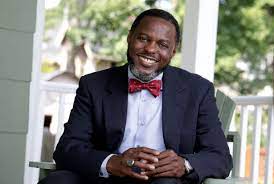Although all humans experience stress, the sources of stress and the effects it has can be very different for individuals. Chronic stressors tend to be continuous and generally are experienced as a result of group membership. These include experiences such as discrimination, racial slights, and police profiling.
One chronic stressor that affects the lives of Black adolescent males is race-based trauma. The insidious and ubiquitous nature of racism can have deleterious effects on the emotional health of this target population. Moreover, being an ethnic minority in American society is a risk factor for negative health outcomes (e.g., increase suicide, depression, anxiety, traumatic stress) largely because racial/ethnic minorities are more frequently exposed to events that produce posttraumatic disturbance. Researcher have documented relationship between an individual’s racial identity and mental health outcomes.
Attitudes and beliefs about one’s race (i.e., racial identity) can also serve as coping resources when they help give the person a positive sense of self, a sense of control or mastery, or reasons to maintain hope or effort. In short, Black adolescent males' attitudes about being Black can affect their psychological well-being.
Furthermore, race scholars suggest that racial and cultural identities can impact Black males’ psychological well-being which has implications for counseling. The presenter will provide culturally responsive interventions, and discuss implications for prevention and ways to support wellness in Black adolescent males.
Target Audience
Physicians (psychiatrists, pediatricians, child neurologists), psychologists, social workers, other mental health clinicians and researchers, and students and trainees.
UPON COMPLETION OF THIS ACTIVITY, PARTICIPANTS WILL BE ABLE TO:
- Define racism and racial trauma in the context of mental health assessment and treatment of Black Males.
- Identify the mental and physical health symptoms correlated with significant experiences of racial discrimination and its mental health consequences.
- Apply an understanding of racial identity development to the assessment and treatment planning for Black Adolescent Males.
- Identify culturally responsive interventions and integrate clinical tools for assessing the mental health impact of racism, racial identity, and racial trauma in therapeutic contexts.
Continuing Education (CE/CEU) Information
PHYSICIANS
The Harvard Medical School is accredited by the Accreditation Council for Continuing Medical Education to provide continuing medical education for physicians. The institution designates this live activity for a maximum of 1.25 AMA PRA Category 1 Credits™. Physicians should claim only the credit commensurate with the extent of their participation in the activity.
PSYCHOLOGISTS
The Children's Hospital Boston Psychology Division is approved by the American Psychological Association to sponsor continuing education for psychologists. This institution maintains responsibility for this program and its content.
SOCIAL WORKERS
The National Association of Social Workers has approved this series for continuing education credits for social workers.

